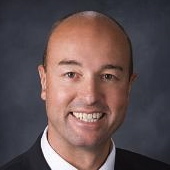On the last day of the 2013 legislative session, lawmakers had one final big debate about education.
Not about the $1.3 billion budget. That bill passed both houses easily Thursday morning, after about a total of 20 minutes’ debate.
The last big debate centered on Senate Bill 1040 — a proposal to allow school boards to cut teacher pay or reduce contract days. The House wound up spending the better part of an hour debating this one bill. And the debate captured some of the key education themes of the 2013 session.
The aftermath of the November elections.
Local control.
And, of course, money.
Like many of the labor bills that came up during the 88-day session, SB 1040 has its origins in Proposition 1, the collective bargaining law rejected by voters in November.
“When is this Legislature going to start listening to the people who elected us?” asked Grant Burgoyne, D-Boise, during lengthy and at times technical debate against the bill.
SB 1040 gave Democrats one last chance to decry this year’s series of labor bills, and chide Republicans for supporting them. Rep. Janie Ward-Engelking, a retired teacher and a Boise Democrat, said the bill would gut teacher contracts.

Minority Leader John Rusche of Lewiston predicted lawsuits, similar to a recent lawsuit in Nampa over teacher furloughs. He also raised the specter of something that hasn’t been seen in Idaho in decades — teacher strikes. “I ask you to seriously think about what you’re doing to public schools.”
Rep. Linden Bateman, a semi-retired teacher and Idaho Falls Republican, admitted to voting with a heavy heart. “The morale among teachers is very low. There’s no question about that.”
But Bateman decided to vote for the bill, in part, because of Mackay — a small town not far from Bateman’s legislative district, and a place where Bateman likes to fish in the fall. Small towns like Mackay need SB 1040, he said, in order to make local budgeting decisions.
On Thursday morning, a debate in Boise was in essence a debate about Mackay. The rural Custer County district is looking to cut $150,000 in its budget, to match the $150,000 levy passed by voters last month. The district’s 16 teachers have agreed to a 5 percent pay cut to protect teaching positions, but supporters say SB 1040 is needed to put this plan into action.

Custer County’s two legislators, Republican Reps. Lenore Barrett and Terry Gestrin, spoke in favor of the bill. So did House Education Committee Chairman Reed DeMordaunt of Eagle, who took a broader view. The Mackay story, he said, “is replicated throughout our state.”
When lawmakers debated the public school budget Thursday, however briefly, much of the discussion circled back to local discretion, and whether schools had adequate discretionary money to stay in operation. Said Senate Education Committee Chairman John Goedde, one of 12 Senate converts who supported the schools budget the second time around, “That’s a topic for another day, in another year.”
In Mackay, and with SB 1040, the issue of local discretion takes on more urgency.
And the issue still can’t be separated from larger questions about funding education. Rusche and most other Democrats supported this year’s personal property tax cut, but on Thursday, he questioned what this move says about Idaho’s commitment to education. “When do the public schools reach the head of the line?”
The debate over SB 1040 was certainly the 2013 Legislature’s last dance on education issues. And perhaps it was its most substantive education debate.
How they voted
The House’s 47-21 vote in favor of Senate Bill 1040:
Yes (47 Republicans, 0 Democrats): N. Anderson, Anderst, Andrus, Barbieri, Barrett, Bateman, Batt, Bedke, Bell, Boyle, Clow, Collins, Crane, Dayley, DeMordaunt, Denney, Gestrin, Gibbs, Harris, Hartgen, Henderson, Hixon, Holtzclaw, Horman, Kauffman, Loertscher, Luker, Malek, McMillan, Mendive, Miller, Monks, Morse, Nielsen, Packer, Palmer, Patterson, Raybould, Romrell, Shepherd, Sims, Thompson, VanOrden, Vander Woude, F. Wood, J. Wood, Youngblood.
No (9 Republicans, 12 Democrats): Agidius, E. Anderson, Bolz, Burgoyne, Chew, Eskridge, Gannon, Hancey, King, Kloc, Meline, Moyle, Pence, Perry, Ringo, Rusche, Smith, Stevenson, Ward-Engelking, Wills, Woodings.
Absent (1 Republican, 1 Democrat): Erpelding, Trujillo.
